Adventures in Africa: Ghana and the Benefits of Biodiversity

Each year, the Cronin Office of International Education offers Bentley students countless opportunities to participate in immersive learning opportunities around the globe. Among them are faculty-led, three-credit international courses that occur during semester breaks in January, March and May.
Alison Sgambati ’24, an Accounting major pursuing double minors in Data Technologies and Leadership, was one of seven Bentley students who traveled to West Africa in January for “Biodiversity, Health and Disease in Ghana” (NAS 3900). The two-week course — led by Tony Kiszewski, an associate professor of epidemiology, with assistance from Otis Johnson, an assistant director of Bentley’s Residential Center, and Sandonei Chiodini, director of faculty-led and custom global programs for the Office of International Education — focuses on the critical link between natural resource conservation and public health. Here, Sgambati shares highlights from the trip.
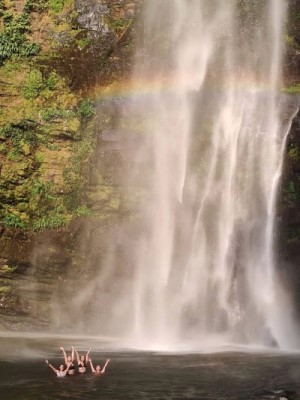
I’ve always been interested in exploring other countries and cultures, but aside from a trip to France as an exchange student in high school and a couple of family vacations in the Caribbean, I haven’t traveled much abroad. Two of my friends had taken this course last year and had wonderful things to say about the time they spent in Ghana, so when it was offered again this year, I couldn’t pass up the opportunity.
As we traveled the country, we had opportunities to learn more about Ghana’s natural resources. Known as the “Gold Coast” from 1821, when it became a British colony, until 1957, the year it gained independence, Ghana is one of Africa’s leading gold producers.
Although much of the industry is regulated and involves multinational companies, illegal mining is widespread and poses a serious threat to the environment. The mining process strips the soil of its nutrients, making it unfit for use by local farmers, and contaminates nearby water supplies with toxic chemicals like mercury. This poses significant health risks to the people and animals who depend on this water for drinking and eat crops that have been irrigated by polluted water.
Ghana’s natural wonders were on display during a visit to Shai Hills Resource Reserve, a wildlife sanctuary where zebra, antelope and baboons roam freely. Shai Hills is also known for its caves, which were used hundreds of years ago as hideouts and meeting places.
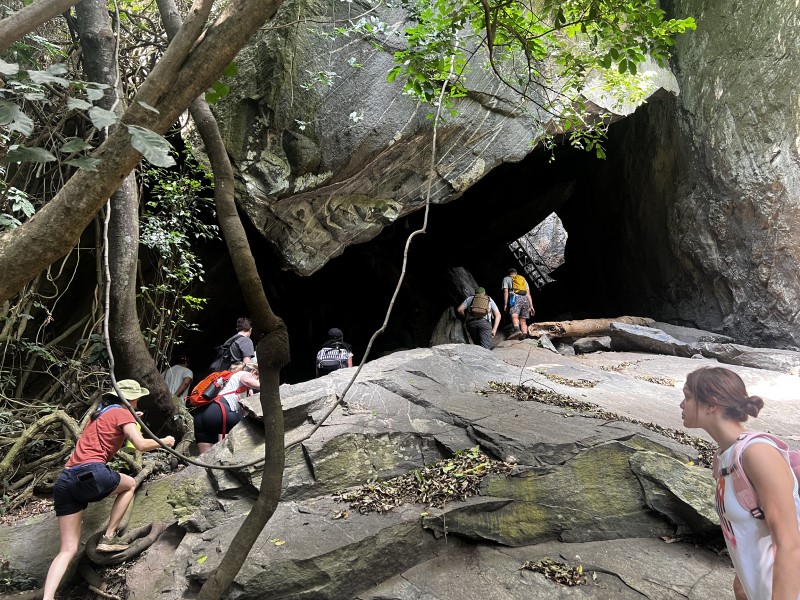
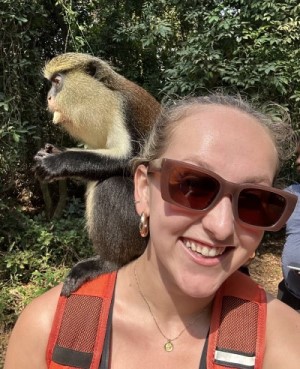
We also visited the Tafi Atome Monkey Sanctuary, where we fed bananas to the adorable mona monkeys.
Like many other sites we visited, the sanctuary is an example of the economic benefits of ecotourism: revenue generated by visitors has helped bring electricity to the surrounding village and fund improvements to the local school and community health clinic.
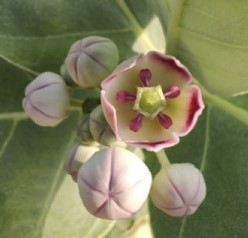
At the Bunso Arboretum, home to more than 600 different plant species, we learned that Ghanaians have a long history of cultivating local flora for their medicinal properties. The bark from mahogany trees, for example, is used to treat malaria, and the powdered roots of the giant milkweed plant help ease respiratory discomfort caused by asthma and bronchitis.
Our guide told us that, despite the prevalence of Western medicine, most Ghanaians today still prefer to use herbal treatments, which are both affordable and accessible. For this reason alone, it’s critical for the Ghanaian government to enforce existing legislation that limits deforestation and commit to sustainable business and agricultural practices that will help preserve the country’s biodiversity.
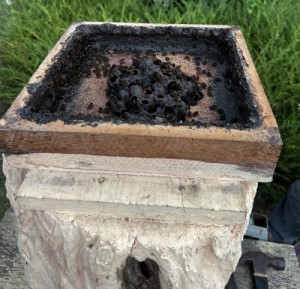
Pollinators play an important role in natural resource conservation, too, as we learned during a visit to the International Stingless Bee Centre. I was amazed to discover that there are hundreds of different bee species in Ghana, many of which collect pollen and nectar only from specific types of flowers.
We also learned about the healing properties of honey and propolis (a waxy substance bees make to build and repair their hives), which naturally inhibit the growth of bacteria and are used to treat burns and boost immunity.
I enjoyed all of these encounters, which helped me understand how biodiversity plays an important role in human health and well-being. My favorite thing about Ghana, though, was getting to know its people, who are warm, welcoming and eager to share their love for their country with visitors.
In Ada, for example, the local fishermen invited us to join them as they hauled in the huge, heavy nets they use for their daily catch. We also spent time with schoolchildren and their teachers at the Island School, where one young boy scaled 40-foot palm trees to harvest fresh coconuts to share with us. And during a visit to the School of Business at the University of Cape Coast, we were paired off with local students. My partner, Elisaphet, impressed me with his passion; when he told me he how he was going to use his degree to make Ghana a better place, it struck me that many of us here at Bentley feel the same way.
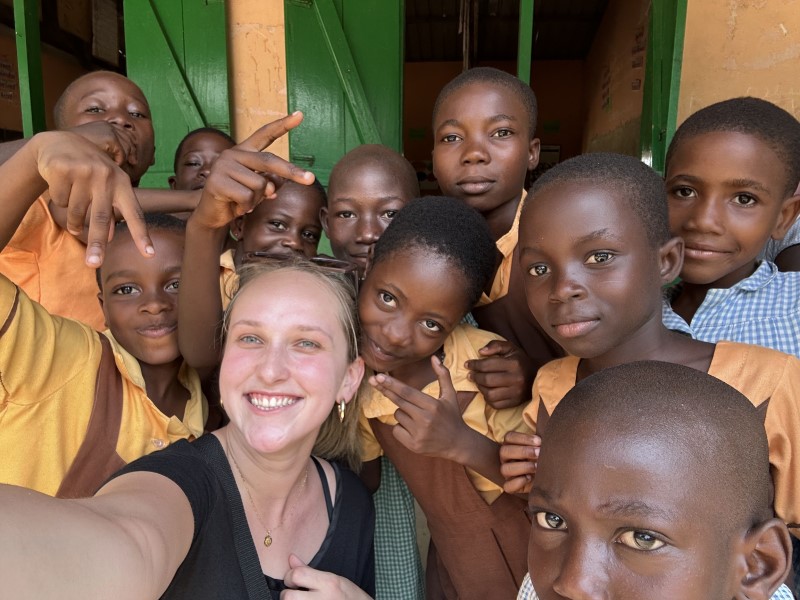
Many of my friends and family were surprised when I told them that I was going to Africa to study biodiversity, health and human disease — and I can admit that, for an accounting major at a business school, it may seem an unusual choice. But I can honestly say that going to Ghana was one of the best decisions I’ve ever made. It was a truly unforgettable and eye-opening experience, and I hope I’ll have an opportunity to make a return visit someday.
The Cronin Office of International Education provides scholarships and financial assistance to ensure that all Bentley students have opportunities to realize their dreams of studying abroad. To amplify their efforts — in Ghana and around the globe — consider making a gift to the Cronin Office of International Education in support of study abroad scholarships.

